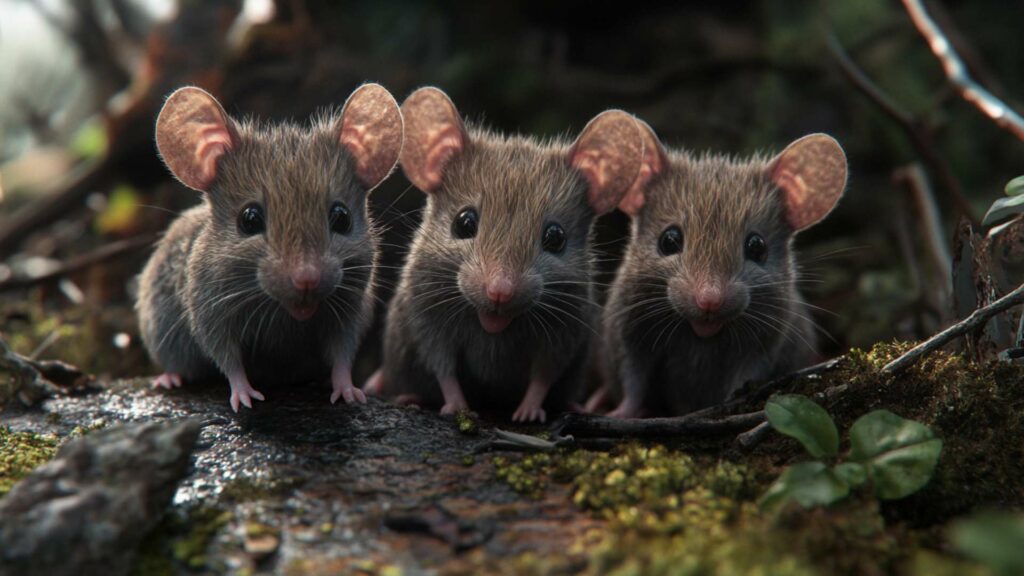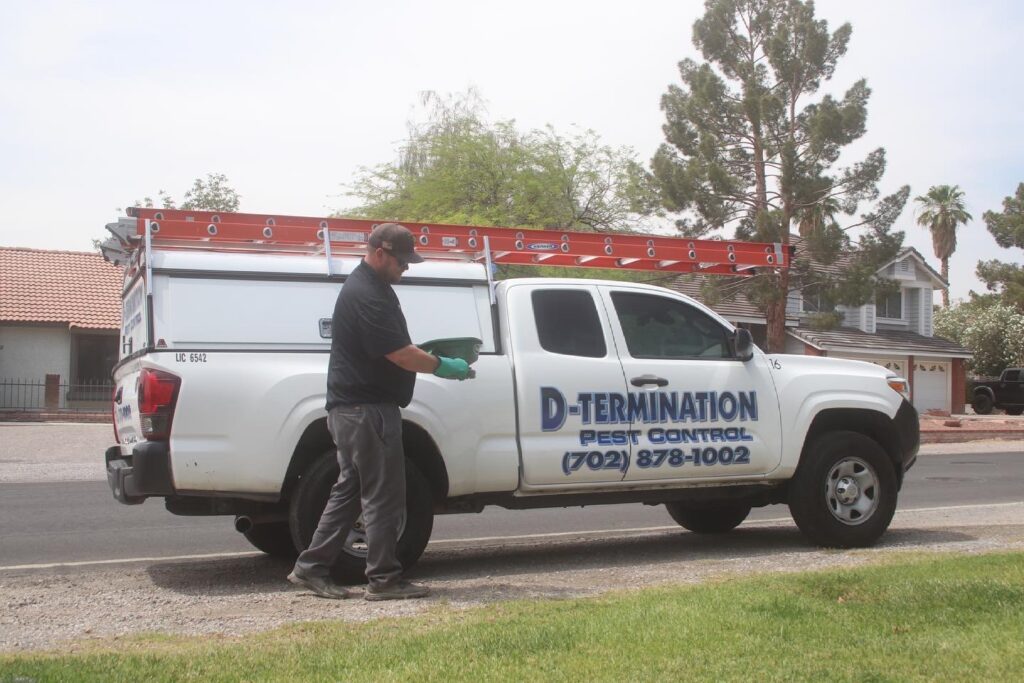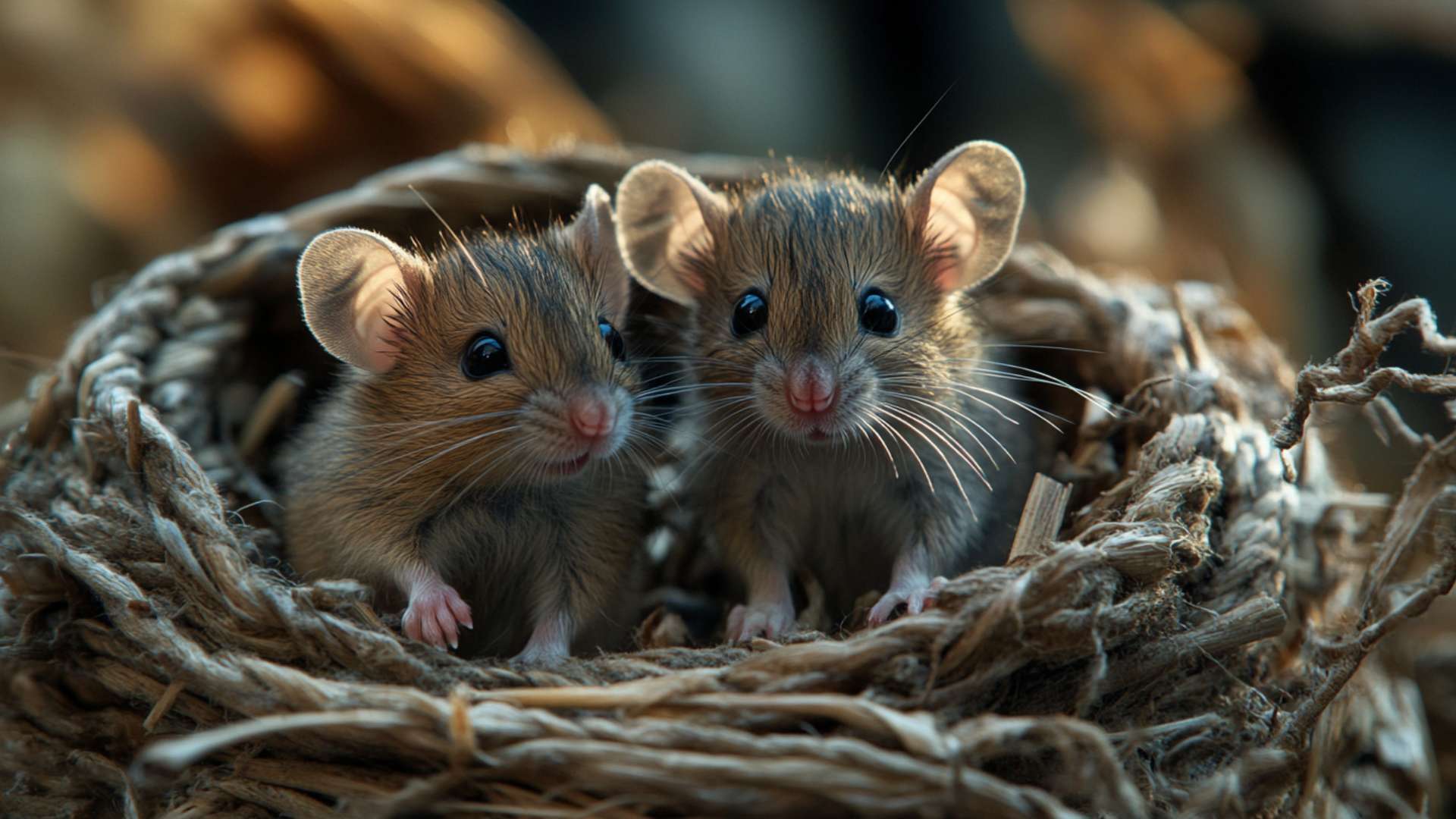The Real Health Risks of Mouse Infestations
When it comes to pests, mice are one of the most common and most dangerous. These little rodents can cause a lot of damage and bring with them a host of health risks. It’s important to know what you’re dealing with when it comes to a mouse infestation, and to take steps to protect yourself, your family members, and your property.
Mice are small animals that can easily fit into tight spaces. They reproduce rapidly, so an infestation of wild mice can quickly get out of hand.
Many people don’t realize just how serious a mouse infestation can be. While they may seem cute and harmless, they pose significant dangers to human health.
Did you know that mice can pose significant health risks to you and your family? Discover the hidden dangers and diseases that may be lurking in your home’s mouse population. Explore our in-depth article on Uninvited Guests: The Hidden Health Risks And Diseases Lurking In Your Home’s Mouse Population to safeguard your health.
The Health Risks Associated with Mouse Infestations
One of the biggest health risks associated with mouse infestations is the spread of diseases. Mice can carry a variety of diseases, some of which are deadly for humans. They leave droppings everywhere they go, with many diseases which can contaminate food and water sources.
Rodent urine and saliva can also spread diseases. Hantavirus is one disease that’s associated with exposure to infected rodents – particularly deer mice in the western United States.
Symptoms include fever, muscle aches, sore throat, difficulty breathing and coughing – in severe cases leading to acute medical care including intensive care unit treatment. Another major issue caused by mice is allergies from exposure to their feces or dander – tiny flakes off their skin that become airborne when disturbed or circulated through air ducts; this could lead respiratory problems such as asthma attacks or bronchitis.
The Hazards of Mouse Infestations in Homes and Workplaces
A mouse infestation doesn’t just pose health risks; it also poses hazards for your home or workplace too! Mice love gnawing on anything they come across, including wires, insulation, and furniture. Their constant chewing can cause a lot of damage over time.
In some cases, this can result in electrical fires caused by damaged wiring. Mice will also contaminate any surfaces or materials they come into contact with, including food and water sources.
This poses a serious risk for food poisoning. The National Pest Management Association reports that mice are known to contaminate at least 10 times as much food as they eat.
If left unchecked, a mouse infestation can lead to significant property damage and put people’s health at risk. It’s important to take preventative measures to protect your home or workplace from these pesky rodents.
Health Risks Associated with Mouse Infestations
Disease-Causing Bacteria Found in Mouse Waste
Mouse droppings, urine, and saliva can contain disease-causing bacteria that pose a serious health risk to humans. One such bacteria is Salmonella, which causes food poisoning when it contaminates food sources. Hantavirus is another dangerous disease carried by mice.
This virus is transmitted through direct contact with rodent urine or feces and can cause symptoms such as abdominal pain, chest pain, and difficulty breathing. In addition to these diseases, the lymphocytic choriomeningitis virus (LCMV) can also be transmitted through contact with mouse waste.
This virus can cause flu-like symptoms including fever, headache, and sore throat. If left untreated, LCMV can lead to serious complications such as meningitis and encephalitis.
Allergies Caused by Exposure to Mouse Dander and Feces
Mouse dander and feces are known allergens that can trigger allergic reactions in sensitive individuals. Symptoms of exposure to these allergens include sneezing, watery eyes, runny nose, and skin rashes.
In addition to these allergic reactions, mice are also carriers of fleas that can transmit diseases such as bubonic plague to humans directly. Fleas will infest mouse nests eating food or nesting materials and then migrate onto other hosts including humans who come into contact with them.
Respiratory Problems from Inhaling Airborne Particles from Mice
Mice shed their hair frequently which then floats around in the air where it is inhaled by people sharing the same space as the mice infestations. Inhaling particles from mouse nests or contaminated materials can cause respiratory problems like wheezing coughs or asthma attacks.
Furthermore inhaling airborne particles from mice feces or urine can cause a serious lung infection called Hantavirus Pulmonary Syndrome. This is a rare but serious illness that can be fatal if not treated immediately.
Mouse infestations pose a real health risk to humans, with disease-causing bacteria found in mouse waste, allergies caused by exposure to mouse dander and feces, and respiratory problems from inhaling airborne particles from mice. It is important for homeowners and business owners to take appropriate rodent control measures to reduce the risk of exposure to these hazards.
Hazards of Mouse Infestations in Homes and Workplaces
Damage to Property

Mice may be small, but that doesn’t mean they can’t cause big problems. One of the most significant hazards of mouse infestations is the damage they can inflict on your property. Mice have powerful jaws, and they use them to gnaw on everything from wires and insulation to furniture.
This behavior isn’t just annoying; it can also be dangerous. Gnawed wires can spark and cause electrical fires, while damaged insulation can lead to increased energy bills.
Risk of Electrical Fires
When mice gnaw on electrical wiring, it’s not just a potential annoyance; it’s also a potentially life-threatening hazard. Damaged wiring can spark and cause electrical fires that quickly spread throughout your home or workplace. According to the National Pest Management Association, rodents are responsible for up to 25% of house fires attributed to unknown causes each year.
Contamination of Food and Water Sources
Another real health risk posed by mouse infestations is the contamination of food and water sources. Mice will eat just about anything they can get their teeth on, including bird seed, pet food, and even garbage. They’ll also urinate and defecate wherever they please – including in areas where you store food or prepare meals.
This contamination can lead to food poisoning symptoms such as abdominal pain, joint pain, muscle pain, fever, diarrhea or nausea if consumed by humans. It’s essential to take prompt action when dealing with a mouse infestation in your home or workplace.
By doing so promptly using rodent control methods like using traps or professional extermination services you may avoid some of these hazards such as property damage caused by gnawing on wires or furniture pieces which could lead to electrical fires that could destroy your property. Also, you can prevent the contamination of food and water sources or spread of the diseases spread by mouse droppings, urine, and saliva.
Prevention and Control Measures for Mouse Infestations
Sealing entry points to prevent mice from entering buildings
One of the best ways to prevent a mouse infestation is to make sure that they can’t get into your home in the first place. Mice are able to squeeze through incredibly small spaces, so it’s important to carefully inspect your home and seal all possible entry points.
This includes gaps around windows and doors, cracks in walls and floors, as well as any openings where pipes or wires enter your home. The materials used for sealing entry points should be strong and durable enough to keep rats and mice out for good.
Steel wool and caulk are both great options for filling small holes, while larger gaps may require the use of foam insulation or wire mesh. It’s always a good idea to consult with a professional exterminator or the National Pest Management Association if you’re not sure how best to seal up your home.
Proper storage of food to avoid attracting mice

Food is one of the primary things that attracts mice into homes, so it’s crucial to store all food items properly. This includes keeping dry goods in sealed containers, placing food scraps in tightly closed bins, and making sure that pet food is only accessible when needed. Mice are especially attracted by open garbage cans filled with leftover food.
Cleaning up spills and crumbs immediately can also help reduce the likelihood of attracting mice into your home. Mice can survive on very small amounts of food each day, so even a tiny bread crumb can be enough for them.
Use traps or professional extermination services
If despite all precautions you still end up with a mouse infestation, there are several options for getting rid of them. While some people prefer using humane traps that allow them to release captured mice back into nature without harm, others prefer more lethal methods.
Some traps can be very effective with a piece of cheese, for example. Professional extermination services are also available for those who want to eliminate rodent infestations as quickly and efficiently as possible.
These professionals have access to advanced treatments and equipment, and can ensure that the problem is fully resolved. It’s important to note that mice carry a variety of diseases, and direct contact with them or their droppings can lead to serious health problems such as respiratory distress, joint pain, allergic reactions, and even bubonic plague.
They contaminate food too. If you’re experiencing early symptoms like fever or skin contact directly with contaminated materials from mice or rat droppings, be sure to seek medical attention immediately.
Lesser-Known Dangers Associated with Mouse Infestations
Increased Risk of Tick-Borne Diseases Carried by Mice
While many people are aware of the health risks posed by house mice and rats, few realize that deer mice – a common species of rodent found in North America – can carry tick-borne diseases such as Lyme disease, Rocky Mountain spotted fever, and tularemia. These diseases are spread when infected ticks bite humans after feeding on infected deer or rodents like mice.
This means that if you live in an area where deer mice populations are high, your risk of contracting these diseases may be increased. One way to reduce your risk is to take measures to prevent tick bites when spending time outdoors.
This includes wearing protective clothing and using insect repellent containing DEET. It’s also important to do regular tick checks on yourself and your pets after spending time in wooded or grassy areas.
Potential for Hantavirus Infection from Exposure to Rodent Droppings
Another lesser-known danger associated with mouse infestations is the potential for hantavirus infection from exposure to infected rodent droppings. Hantavirus is a potentially life-threatening disease that can cause respiratory failure, muscle aches, and other symptoms.
It’s transmitted through contact with contaminated materials such as rodent feces or urine. To reduce your risk of hantavirus infection, it’s important to take precautions when cleaning up contaminated materials in areas where rodents may be present.
This includes wearing gloves and a mask while cleaning up droppings or urine-stained areas. If you suspect that you may have been exposed to hantavirus, seek medical attention immediately and inform healthcare providers about the potential exposure.
Conclusion
While most people are aware of the real health risks posed by rat infestations and rat droppings, many are unaware of the potential dangers associated with mouse infestations. In addition to the spread of diseases through rodent droppings, urine, and saliva, and the respiratory problems caused by inhaling airborne particles from mice, there are also lesser-known hazards such as an increased risk of tick-borne diseases carried by deer mice and the potential for hantavirus infection from rodent bites or exposure to contaminated materials. By taking preventative measures such as sealing entry points to prevent rodents from entering buildings and properly storing food, you can reduce your risk of these serious health hazards.
Conclusion: The Importance of Prevention
The health risks and the health hazards posed associated with mouse infestations are real and can be quite serious. As we have learned, mice can spread diseases through their droppings, urine and saliva, which can lead to a wide range of illnesses from mild food poisoning to potentially life-threatening diseases like hantavirus infection.
In addition to the spread of diseases, mice can also cause physical damage to your property by gnawing on wires and insulation. It is clear that taking preventative measures against rodent infestations is critical for safeguarding your health and well-being.
To keep rodents out of your home or workplace, it’s important to seal up any entry points they might use to gain access. Proper storage of food will also help prevent attracting rodents.
If you do see signs of a mouse or rodent infestation in your home or workplace (such as droppings or damage), it’s important that you take immediate action by either using traps or calling professional extermination services. While many people view mice as harmless creatures that are cute and cuddly in cartoons and movies, the reality couldn’t be further from the truth – rodents pose real health risks and should always be taken seriously.
By being proactive in preventing infestations, you can protect yourself and those around you from the negative consequences associated with rodent-borne illness. Remember: an ounce of rodent prevention is worth a pound of cure!
Put an end to rats and mice with D-Termination: the premier pest control service in Las Vegas.

Are you exhausted from dealing with rats and mice on your Las Vegas property? Look no further than D-Termination for the ultimate solution. Our team of experts specializes in eliminating these troublesome rodents, bringing back peace to your space. Bid farewell to rat and mouse problems—opt for D-Termination today for effective pest control!
Contact us at 702-919-6310 or visit dtermination.com to schedule your rodent control service and reclaim your space from unwelcome guests.
Frequently Asked Questions:
Mice infestations can lead to various health issues, such as allergies, respiratory problems, and the transmission of diseases.
Yes, mouse droppings can be a health hazard as they may contain bacteria, viruses, and parasites that can cause diseases.
Pest infestations can pose several health risks, including allergies, bites, stings, contamination of food, and the spread of diseases.
While mice in your house can potentially contribute to illness, it’s essential to identify the specific factors causing your symptoms and take appropriate measures to address them.
If you found this article enjoyable, you might also appreciate the following suggestions:
Unwanted Roommates: The Deadly Diseases Carried By Mice
Sneezing And Wheezing: Understanding Allergies And Respiratory Problems Caused By Mice








